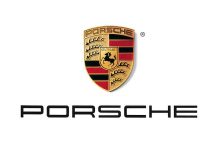Rumours suggest Volkswagen aiming for Thailand
Japanese car makers currently control some 88 percent of the local car market, but the iconic German car maker Volkswagen AG, the largest in Europe, is reportedly planning to establish its first plant in Thailand.
Based in Wolfsburg in Germany, the management of Volkswagen AG see plenty of growth potential in the Southeast Asian region. The company has been actively aiming at spreading its global wings and with current sales volumes in Southeast Asia significantly smaller than they achieve in the United States and China, Volkswagen have started to look at setting up a manufacturing centre in Thailand.
The company is currently in negotiations with the relevant authorities with the aim of participating in a government scheme offering tax exemptions for car makers who invest a minimum of 6.5 billion baht in local manufacturing.
Annual production must achieve 100,000 units by the fourth year after operations commence, and the plant must be set up and functional no later than 2019 in order to take advantage of the incentives.
Sales of Volkswagen stood at a mere 1,000 units in 2013, up slightly from 812 vehicles the previous year, so the company has a huge upside potential if it does decide to set up operations in the local marketplace.
By way of comparison, Toyota leads the Thai market in sales, and according to figures supplied by industry firm LMC Automotive, the Japanese car maker had 30 percent of the local market in 2013 with sales of 725,135 passenger vehicles. Honda was close on Toyota’s heels with 29 percent of the market share.
Being located in Thailand will make Volkswagen’s pricing far more competitive. Currently, Volkswagen’s are imported into Thailand and subject to a customs duty that can be as high as 300 percent.
According to its own website, Volkswagen sees a strong market opportunity and believe they could achieve an annual growth rate of around 4.5 percent through to 2018.
Volkswagen AG has already established a small manufacturing presence in the region. In 2012 Volkswagen started assembling Passat sedans in Malaysia with the local car maker DRB-Hicom Bhd. That move has been seen as a successful dipping of the toe in the local automotive pool, although any details about its current negotiations with the Thai government are presently unavailable since plans may, after all, change at the crucial last minute.
Emerging markets are key growth areas for major motor vehicle manufacturers and Volkswagen, with a long history, a good reputation, and the strength it possesses from being the largest manufacturer in Europe, should be able to achieve its forecast growth in Southeast Asia without trouble, providing it gets a deal it is happy with from the Thai government.









